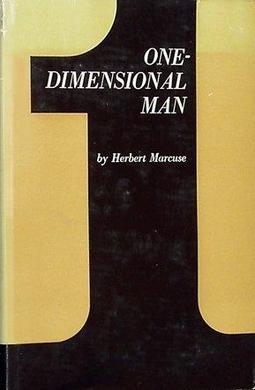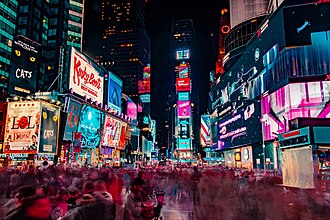
Anti-capitalism is a political ideology and movement encompassing a variety of attitudes and ideas that oppose capitalism. In this sense, anti-capitalists are those who wish to replace capitalism with another type of economic system, such as socialism or communism.

Consumerism is a social and economic order in which the aspirations of many individuals include the acquisition of goods and services beyond those necessary for survival or traditional displays of status. It emerged in Western Europe before the Industrial Revolution and became widespread around 1900. In economics, consumerism refers to policies that emphasize consumption. It is the consideration that the free choice of consumers should strongly orient the choice by manufacturers of what is produced and how, and therefore orient the economic organization of a society. Consumerism has been criticized by both individuals who choose other ways of participating in the economy and environmentalists concerned about its impact on the planet. Experts often assert that consumerism has physical limits, such as growth imperative and overconsumption, which have larger impacts on the environment. This includes direct effects like overexploitation of natural resources or large amounts of waste from disposable goods and significant effects like climate change. Similarly, some research and criticism focuses on the sociological effects of consumerism, such as reinforcement of class barriers and creation of inequalities.

Subvertising is the practice of making spoofs or parodies of corporate and political advertisements. The cultural critic Mark Dery coined the term in 1991. Subvertisements are anti-ads that deflect advertising's attempts to turn the people's attention in a given direction. According to author Naomi Klein, subvertising offers a way of speaking back to advertising, ‘forcing a dialogue where before there was only a declaration.’ They may take the form of a new image or an alteration to an existing image or icon, often in a satirical manner.

In Marxist philosophy, the term commodity fetishism describes the economic relationships of production and exchange as being social relationships that exist among things and not as relationships that exist among people. As a form of reification, commodity fetishism presents economic value as inherent to the commodities, and not as arising from the workforce, from the human relations that produced the commodity, the goods and the services.
In social behavior, downshifting is a trend where individuals adopt simpler lives from what critics call the "rat race".

Economic materialism can be described as either a personal attitude that attaches importance to acquiring and consuming material goods or as a logistical analysis of how physical resources are shaped into consumable products.

One-Dimensional Man: Studies in the Ideology of Advanced Industrial Society is a 1964 book by the German–American philosopher and critical theorist Herbert Marcuse, in which the author offers a wide-ranging critique of both the contemporary capitalist society of the Western Bloc and the communist society of the Soviet Union, documenting the parallel rise of new forms of social repression in both of these societies, and the decline of revolutionary potential in the West. He argues that the "advanced industrial society" created false needs, which integrated individuals into the existing system of production and consumption via mass media, advertising, industrial management, and contemporary modes of thought.
Post-capitalism is in part a hypothetical state in which the economic systems of the world can no longer be described as forms of capitalism. Various individuals and political ideologies have speculated on what would define such a world. According to classical Marxist and social evolutionary theories, post-capitalist societies may come about as a result of spontaneous evolution as capitalism becomes obsolete. Others propose models to intentionally replace capitalism, most notably socialism, communism, anarchism, nationalism and degrowth.

Frugality is the quality of being frugal, sparing, thrifty, prudent, or economical in the consumption of resources such as food, time or money, and avoiding waste, lavishness or extravagance.

Criticism of capitalism is a critique of political economy that involves the rejection of, or dissatisfaction with the economic system of capitalism and its outcomes. Criticisms typically range from expressing disagreement with particular aspects or outcomes of capitalism to rejecting the principles of the capitalist system in its entirety.
Tim Kasser is an American psychologist and book author known for his work on materialism and well-being.
The term "capitalist realism" has been used, particularly in Germany, to describe commodity-based art, from Pop Art in the 1950s and 1960s to the commodity art of the 1980s and 1990s. When used in this way, it is a play on the term "socialist realism". Alternatively, it has been used to describe the ideological-aesthetic aspect of contemporary corporate capitalism in the West.
Sustainable consumption is the use of products and services in ways that minimizes impacts on the environment.
Degrowth is an academic and social movement critical of the concept of growth in gross domestic product as a measure of human and economic development. Degrowth theory is based on ideas and research from a multitude of disciplines such as economics, economic anthropology, ecological economics, environmental sciences, and development studies. It argues that the unitary focus of modern capitalism on growth, in terms of the monetary value of aggregate goods and services, causes widespread ecological damage and is not necessary for the further increase of human living standards. Degrowth theory has been met with both academic acclaim and considerable criticism.
Advertising is a form of selling a product to a certain audience in which communication is intended to persuade an audience to purchase products, ideals or services regardless of whether they want or need them. While advertising can be seen as a way to inform the audience about a certain product or idea it also comes with a cost because the sellers have to find a way to show the seller interest in their product. It is not without social costs. Unsolicited commercial email and other forms of spam have become so prevalent that they are a major nuisance to internet users, as well as being a financial burden on internet service providers. Advertising increasingly invades public spaces, such as schools, which some critics argue is a form of child exploitation. Advertising frequently uses psychological pressure on the intended consumer, which may be harmful. As a result of these criticisms, the advertising industry has seen low approval rates in surveys and negative cultural portrayals.

Culture jamming is a form of protest used by many anti-consumerist social movements to disrupt or subvert media culture and its mainstream cultural institutions, including corporate advertising. It attempts to "expose the methods of domination" of mass society.
Hyperconsumerism, hyper-consumerism, hyperconsumption or hyper-consumption is the consumption of goods beyond ones necessities and the associated significant pressure to consume those goods, exerted by social media and other outlets as those goods are perceived to shape one's identity. Frenchy Lunning defines it curtly as "a consumerism for the sake of consuming."

"Bobo Brand" is an informal name used to refer to a product that is sold inexpensively under an unpopular brand name. These products are perceived as inferior to better-known brands. Though they are less expensive, they are often not lower quality.
Show Me the Monet is a 2005 oil on canvas painting by graffiti artist Banksy. The work is an appropriation of Claude Monet’s Water Lilies series. Banksy has appropriated Monet’s paintings to now depict a traffic cone and two shopping carts polluting and submerging into Monet's pond at Giverny. The work is believed to be a commentary on the negative impacts of capitalism and consumerism within society. Show Me the Monet exists within Banksy’s Crude Oil series. The work was sold in October 2020 by Sotheby’s. The work was sold for £7.5 million.

Capital in the Anthropocene is a 2020 non-fiction book by Japanese academic Kohei Saito. Drawing from writings on ecology and natural science by Karl Marx, the book presents a Marxist argument for degrowth as a means of mitigating climate change. Capital in the Anthropocene was an unexpected commercial success in Japan, selling over half a million copies.












